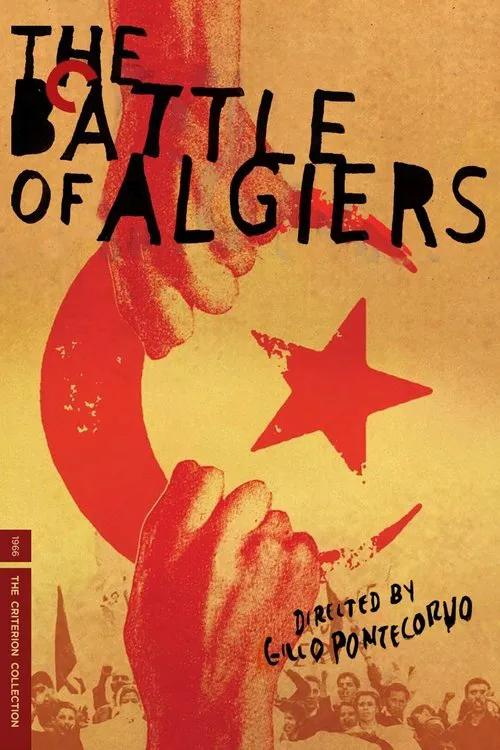Five Directors On The Battle of Algiers

Trama
The Five Directors on the Battle of Algiers documentary brings together some of the most renowned filmmakers of the modern era, each sharing their own unique perspective on the 1966 classic, The Battle of Algiers. The film, directed by Gillo Pontecorvo, is a gripping and thought-provoking portrayal of the Algerian struggle for independence against French colonial rule, and its influence on world cinema is nothing short of profound. As the five directors delve into the film's technical aspects, they reveal just how closely it has influenced their own work, and highlight the reasons behind its enduring power. At the center of the documentary are five filmmakers who are united by their shared passion for film, but also by their differing visions and experiences. Spike Lee, known for his vibrant and energetic approach to storytelling, reflects on how The Battle of Algiers' use of long takes and naturalistic cinematography has influenced his own work. He highlights the film's ability to convey a sense of realism, and notes that even when the action is intense and chaotic, the viewer is never once jostled out of the narrative. This is a testament to the film's masterful editing, which seamlessly weaves together multiple storylines and perspectives, creating a narrative that is both coherent and visceral. Steven Soderbergh, on the other hand, is drawn to the film's use of long, unblinking takes, which he argues allows the viewer to become fully engaged in the storytelling process. He notes that The Battle of Algiers' approach to cinematography creates a sense of intimacy with the characters, drawing the viewer into their world and making the events of the film feel all too real. This is something that he has sought to replicate in his own work, particularly in films such as Traffic, where the use of long takes and naturalistic cinematography helped to create a sense of immediacy and urgency. Oliver Stone, a director known for his more conventional and narrative-driven approach to storytelling, is equally impressed by The Battle of Algiers' technical achievement. He notes that the film's use of long takes and naturalistic cinematography is not just a matter of aesthetics, but also a reflection of the filmmaker's commitment to telling a truthful story. This, he argues, is something that he has sought to replicate in his own work, particularly in films such as Platoon, where the use of long takes and naturalistic cinematography helped to create a sense of realism and immediacy. Julian Schnabel, a director known for his more experimental and avant-garde approach to storytelling, is also drawn to the film's use of long takes and naturalistic cinematography. He notes that The Battle of Algiers' approach to cinematography creates a sense of space and time that is both poetic and visceral. This, he argues, is something that he has sought to replicate in his own work, particularly in films such as Broken Flowers, where the use of long takes and naturalistic cinematography helped to create a sense of dreamlike surrealism. Mira Nair, a director known for her work on films such as Salaam Bombay and Monsoon Wedding, brings a different perspective to the documentary. She notes that The Battle of Algiers' portrayal of the Algerian struggle for independence is not just a historical event, but also a deeply personal and emotional experience. She highlights the film's use of real-life characters and settings, which helps to create a sense of authenticity and intimacy. This, she argues, is something that she has sought to replicate in her own work, particularly in films such as Vagabond, where the use of real-life characters and settings helped to create a sense of realism and immediacy. Throughout the documentary, it becomes clear that each of the five directors has found inspiration in The Battle of Algiers, and that the film's influence can be seen in their own work. Whether it is the use of long takes and naturalistic cinematography, or the commitment to telling a truthful story, the filmmakers are united by their shared passion for film and their respect for The Battle of Algiers as a landmark work. Despite the passing of time, the film remains a powerful and thought-provoking portrayal of the human experience, and its influence on world cinema is nothing short of profound. As the documentary comes to a close, it becomes clear that The Battle of Algiers is more than just a film - it is a cultural touchstone, a work of art that has influenced generations of filmmakers and continues to inspire new works of cinema. Whether it is Spike Lee's energetic and vibrant storytelling, Steven Soderbergh's use of long takes and naturalistic cinematography, Oliver Stone's commitment to telling a truthful story, Julian Schnabel's poetic and visceral approach to storytelling, or Mira Nair's use of real-life characters and settings, the film's influence can be seen in their own work. This is a testament to the power and influence of The Battle of Algiers, and to the enduring legacy of Gillo Pontecorvo as a filmmaker.
Reseñas
Recomendaciones




